Feeding Your Baby

Eating for two doesn't mean consuming double—but it does mean that whatever you eat, your baby eats, too. "The nutrition your baby gets in the womb does impact her later health," says Dr. Michele Hakakha, an ob-gyn in Beverly Hills and co-author of Expecting 411. So incorporate these nutrient-packed picks into your diet—they'll benefit both you and your developing baby.
Eggs
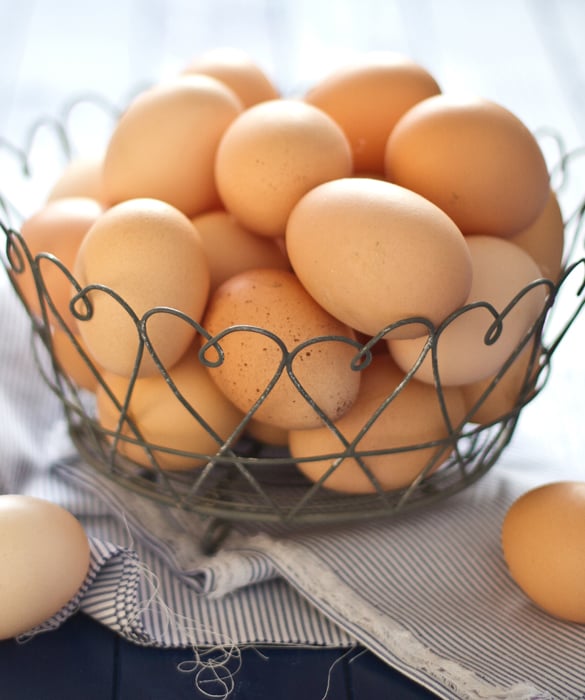
Eggs are packed with protein, iron, folate and brain-boosting omega-3 fatty acids. Don't toss the yolk and just eat the whites, says Michelle LaCroix Mallik, nutritionist at B Nutritious in New York City. The yolk is where most of the key nutrients are, including choline—crucial for the development of your baby’s brain. Just make sure they're fully cooked—runny eggs carry the risk of Salmonella.
RELATED: A Guide to Pregnancy Eating
Strawberries
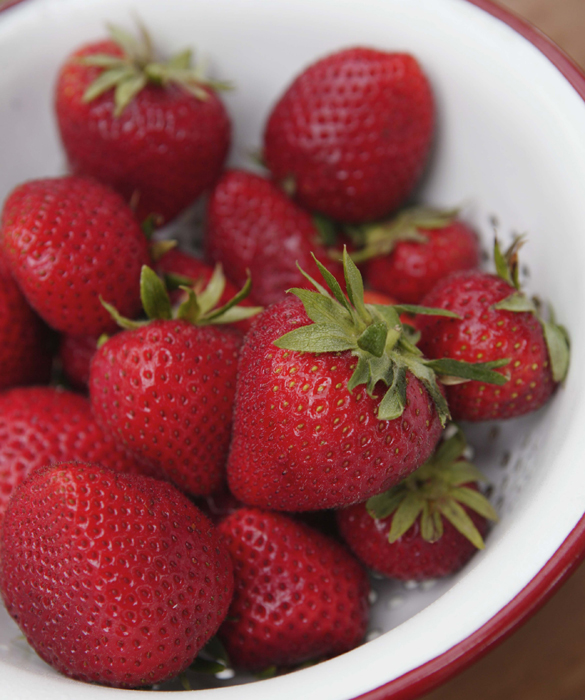
If you eat one cup of strawberries you'll fulfill your vitamin C requirement for the day. Added bonuses: fiber and antioxidants. Because strawberries have one of the highest amounts of pesticide residue of all fruits and vegetables, buy USDA certified-organic when you can. It’s best to avoid consuming any extra pesticides during your pregnancy, says LaCroix Mallik. Not a fan of strawberries? Other berries, such as raspberries, blueberries and blackberries, offer comparable nutrients.
Spinach
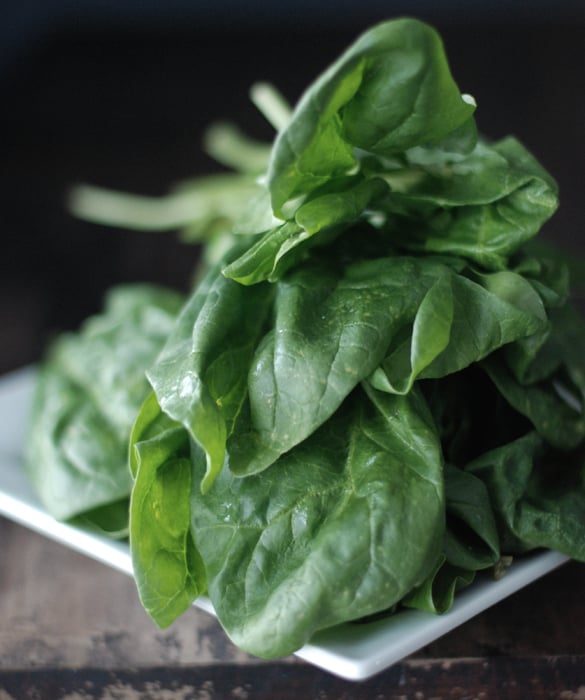
Trade romaine or other salad greens for spinach—it’s high in folate, which helps prevent neural tube defects like spina bifida. It's also a good source of iron, which you need almost 40 percent more of during pregnancy. Your body absorbs iron best from meat sources, but you can help your body absorb more from plant sources like spinach by pairing the leafy green with vitamin C-rich foods. Toss bell peppers or strawberries on your salad.
Greek Yogurt
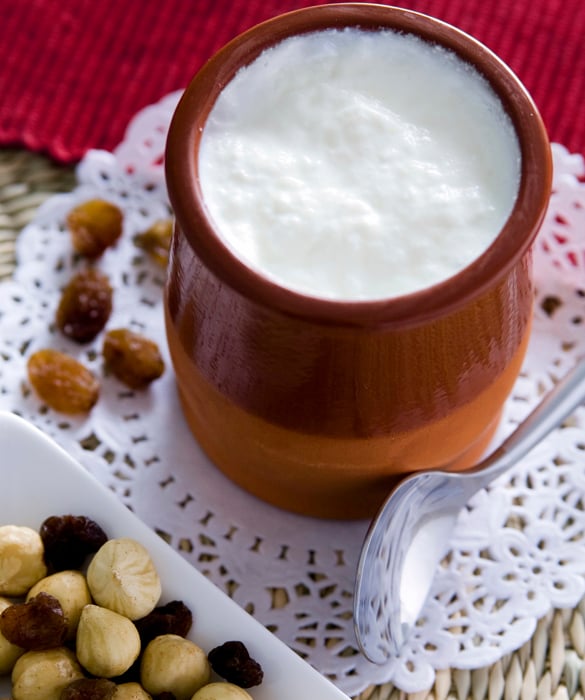
Check off one of your three daily servings of calcium with a cup of nonfat yogurt. Calcium is essential for healthy bones and teeth (in both you and your developing baby). It may also prevent preeclampsia. For the most nutritious option, go Greek. It’s super-high in protein and lower in sugar than traditional yogurt. Stick to plain varieties and mix in fresh fruit or nuts to kick up the flavor without racking up sugar.
Salmon
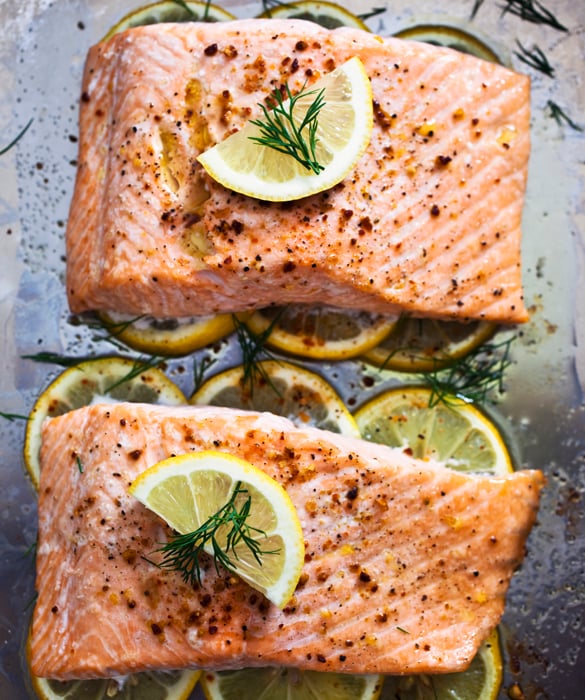
This low-mercury fish is a great source of lean protein. It’s also good for omega-3 fatty acids, DHA, ALA and EPA—all important for boosting baby’s brain. In some studies, moms-to-be who consumed higher levels of DHA had children with slightly higher IQs at 4 years old, says Dr. Hakakha. These essential nutrients are also important for eye and nervous system development. Avoid smoked salmon, and have the fish cooked medium well to avoid any bacteria.
Pumpkin Seeds
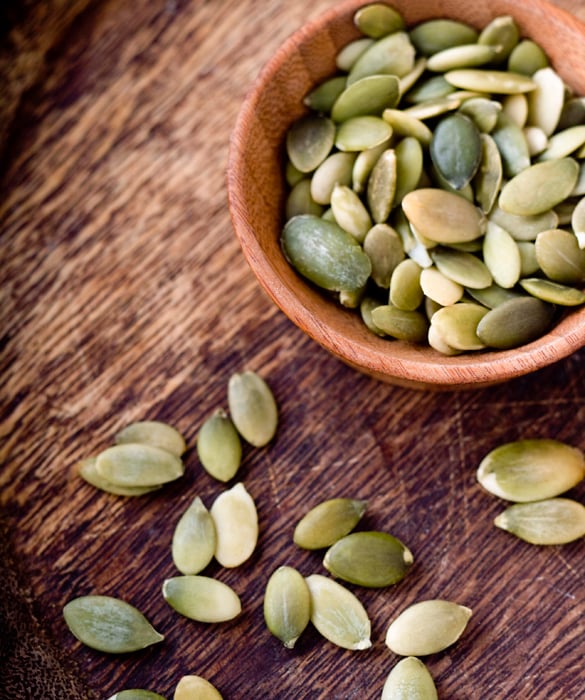
Perfect for snacking or tossing in salads, roasted pumpkin seeds contain protein, iron, omega-3s and magnesium. While the amounts of these nutrients are small, like the seed, every bit adds up. They’re also a healthy addition to a dried fruit and nut trail mix.
RELATED: The 411 on Preeclampsia
Quinoa
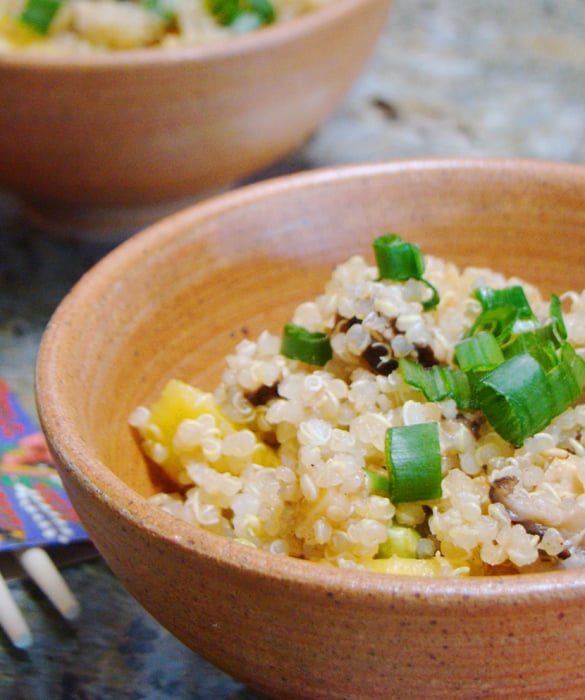
Even though quinoa is a seed and eaten like a whole grain, it provides all of the essential amino acids to make it a complete protein—something that's typically only found in meat protein sources. This makes it a superb protein-packed choice for vegetarian moms-to-be. Quinoa is also naturally gluten-free, and provides iron, calcium, B vitamins, manganese, magnesium, copper and fiber. You’ll love that it cooks faster than rice. It tastes great made as a cold salad, too.
Small Fish
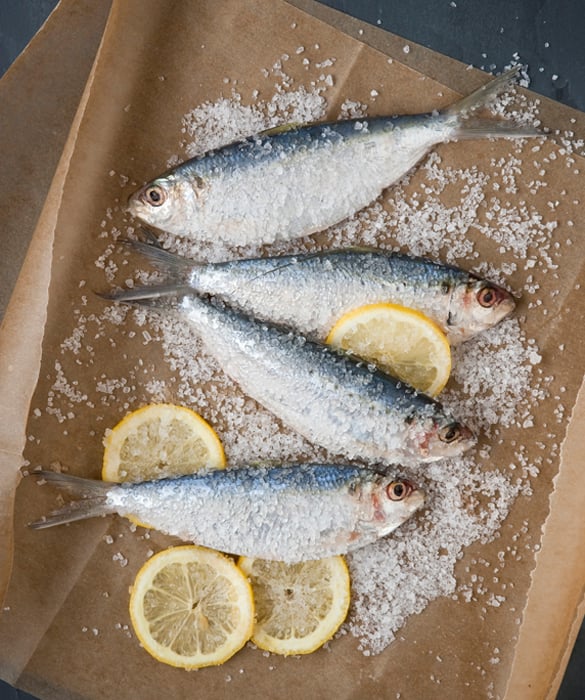
Sardines, anchovies, mackerel and herring are low in mercury and packed with brain-building omega-3s, calcium (from their little bones) and iron. “The smell might turn you off, but if you’re craving salt, these are a good option,” says LaCroix Mallik. Grill them, throw some in a pasta dish or sauce, or eat them on toast or crackers. These tiny sea creatures are typically less expensive and more sustainably sourced than salmon and other safe-for-pregnancy seafood.
Almond Butter
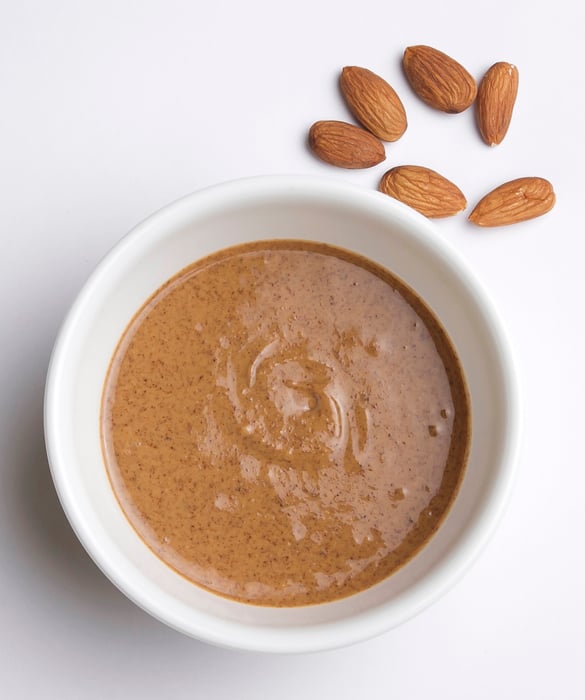
Like peanut butter? Try almond butter instead. This filling spread has more calcium than its peanut-based cousin, plus it offers protein and healthy fats. Stir it into oatmeal, spread it onto whole-wheat toast, or try LaCroix Mallik’s favorite: Mix it with Greek yogurt and cinnamon, then use as a dip for apple or pear slices.
RELATED: Eat These Foods, Get Great Skin
Lentils and Other Beans
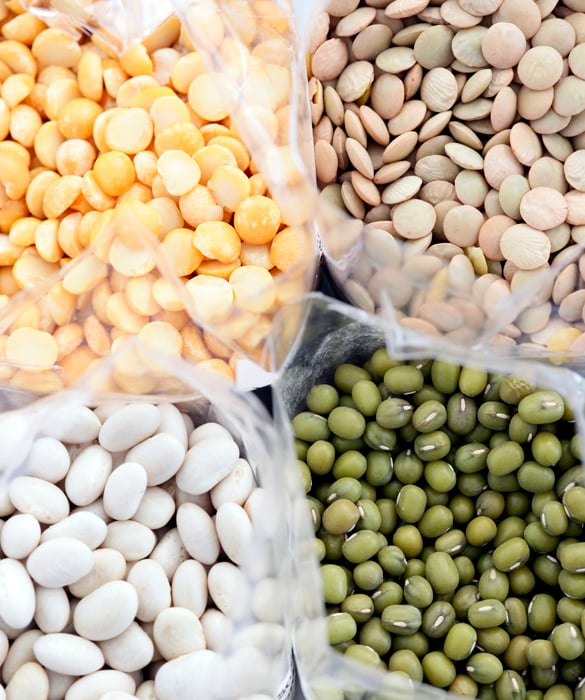
Lentils are a top source of folate, iron and protein. Beans also have magnesium, which helps with energy, muscles and nerves. LaCroix Mallik favors darker beans like black beans, kidney beans and pinto beans, because they have even more vitamins and minerals. And beans offer a big dose of fiber—crucial for keeping your digestive track moving.